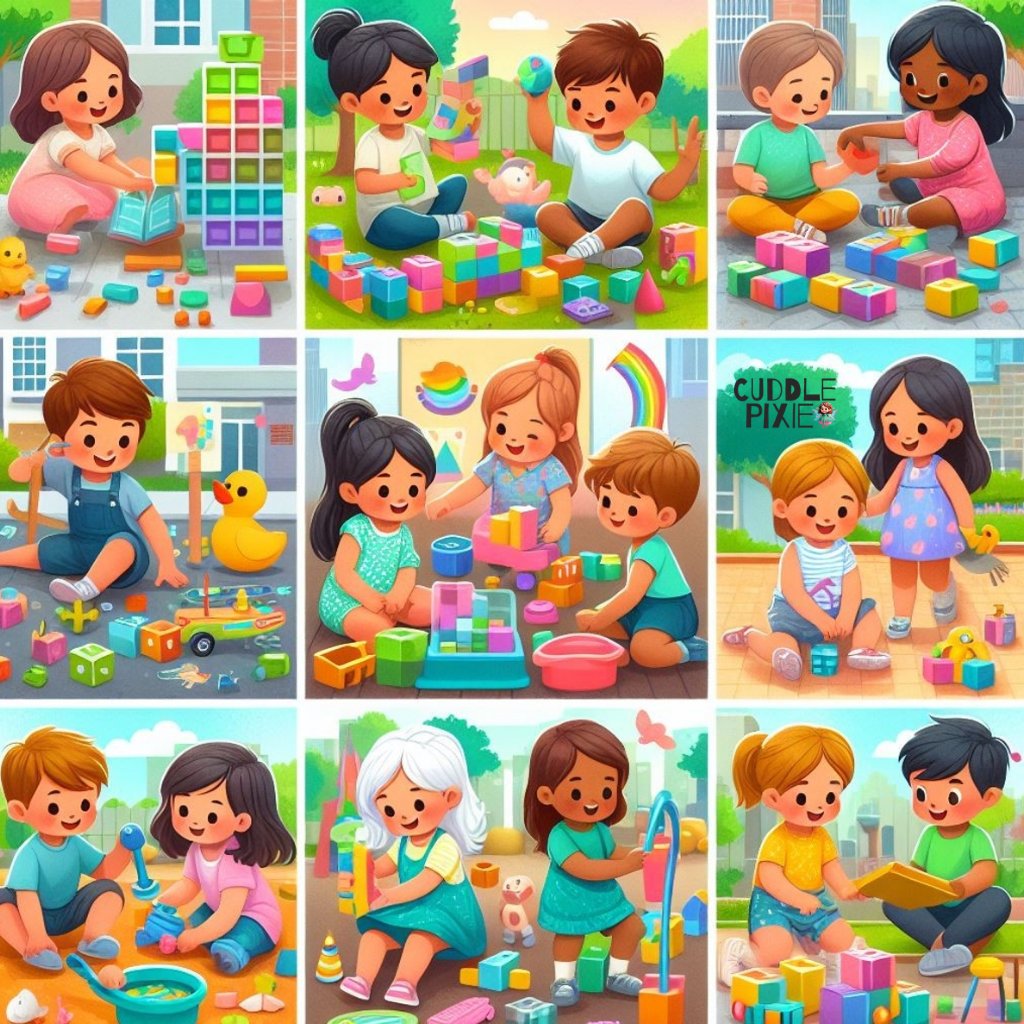Have you ever watched a child lost in their own world, building castles out of blankets, or having tea parties with stuffed animals? What might seem like pure fun and games is actually much more important. Playtime is more than just a break from learning; it’s a powerful tool that shapes how children grow and develop. Think of a child’s brain like a big, beautiful garden. Through play, we plant the seeds of important skills that will help them blossom throughout their lives. These skills aren’t learned from textbooks but from the joyful experiences of make-believe and exploration.
In This Article
The Learning Lab: Play and Brain Power
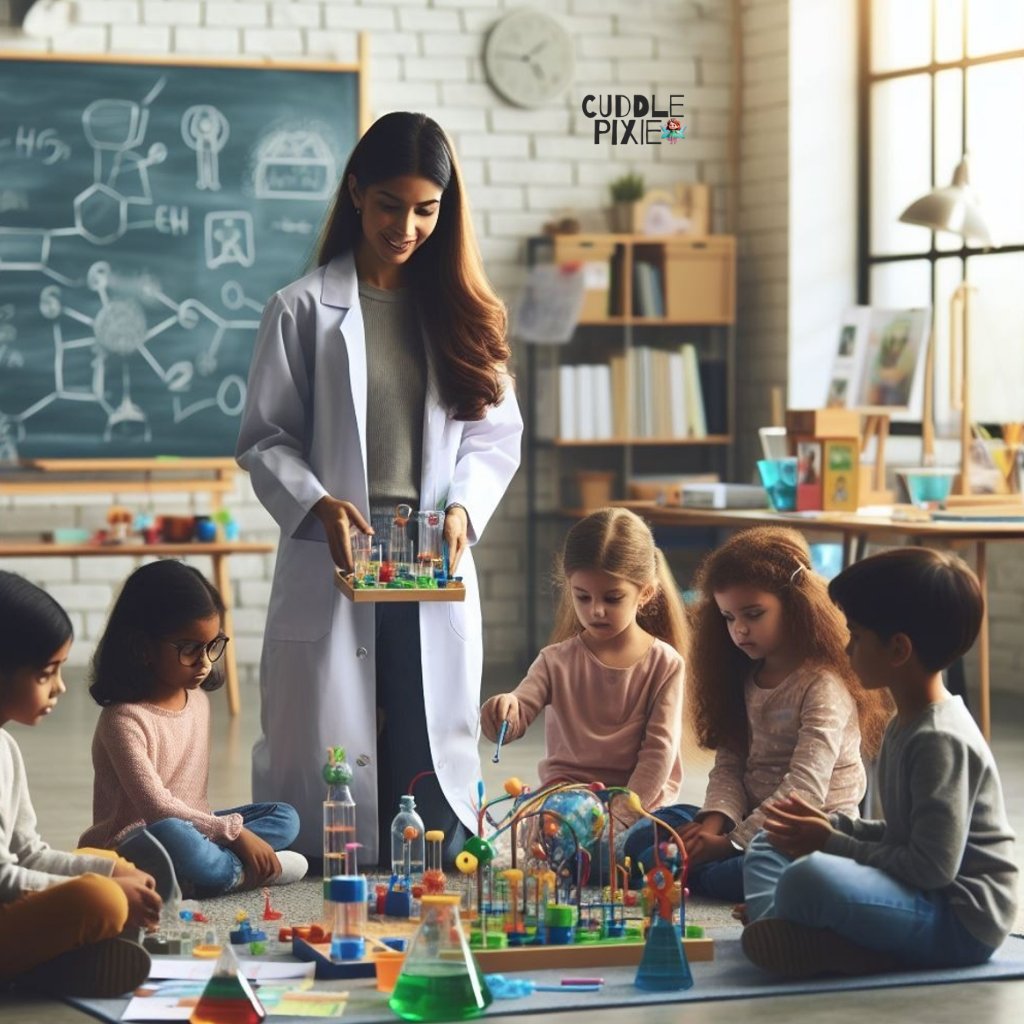
Play is like a workout for a child’s brain. As they explore, imagine, and solve problems, they build important connections between brain cells. These connections help them learn, remember, and think creatively.
- Imagination Station: Pretend play is a playground for the imagination. Whether they’re a daring pirate or a caring doctor, children experiment with different roles and stories. This fuels their creativity and helps them think outside the box. Imagine a child building a spaceship out of pillows. They’re not just having fun; they’re figuring out how things fit together, how to create something new, and maybe even dreaming about exploring the stars!
- Problem-Solving Palace: Play is full of challenges! Building a block tower teaches them about balance and cause and effect. Figuring out how to share toys with a friend builds problem-solving skills. Play helps them learn to think critically and find solutions on their own. Think about a child trying to get a ball out from under the couch. They might try using a stick, a book, or even another toy. Each attempt is a problem-solving adventure that helps them develop critical thinking skills.
- Memory Marvel: Remember that game of hide-and-seek? It turns out, that playing helps with memory too! As children try to remember where they hid or where their friends might be, they strengthen their memory muscles. Even simple games like matching cards or sorting toys help children develop their memory and focus.
Building Strong Bodies and Happy Hearts
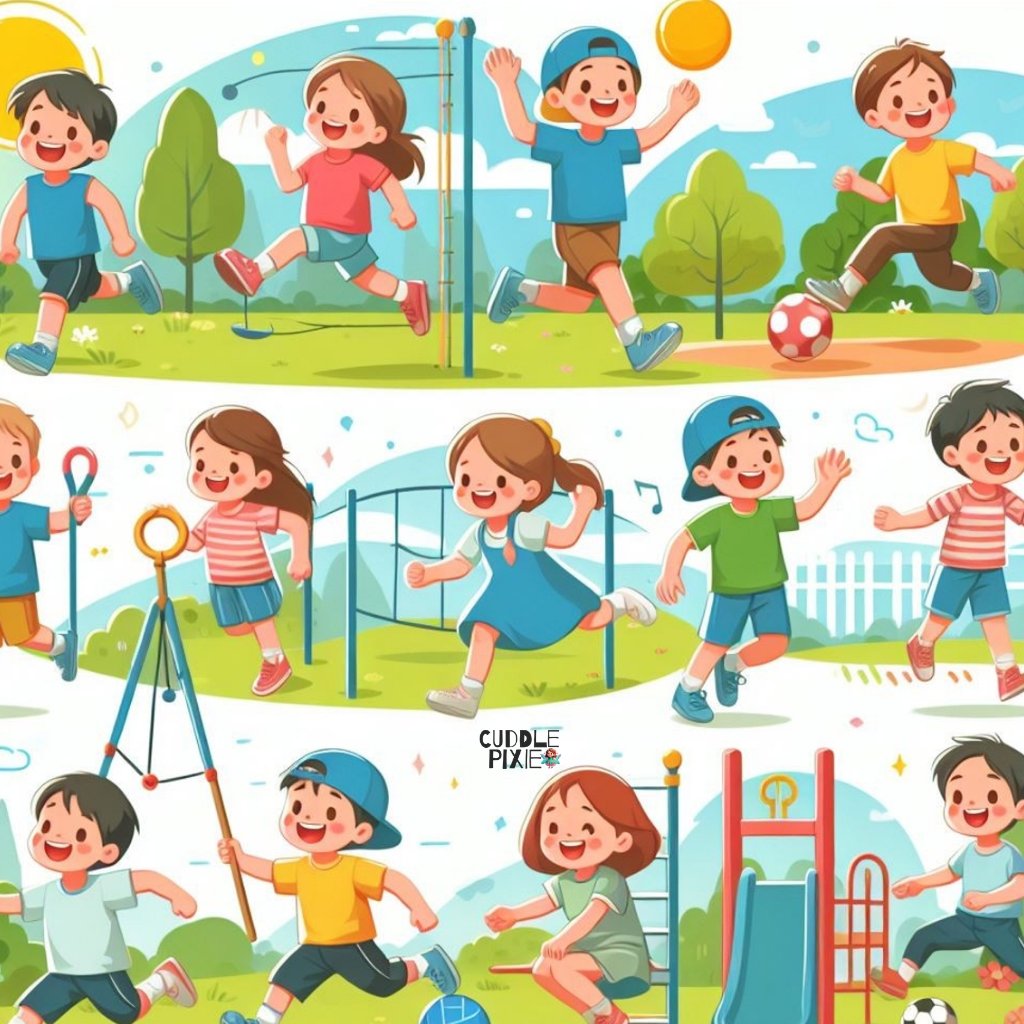
Play is more than just about what goes on inside a child’s head. It helps their bodies grow strong and healthy too!
- Move It or Lose It: Running, jumping, and climbing during playtime help children develop their gross motor skills, which are the big movements they use every day. Think about a child chasing bubbles or climbing on the playground. These playful activities help them develop coordination, strength, and balance.
- Fine-tuning the Fingers: Building with blocks, playing with clay, and scribbling with crayons all help develop fine motor skills, which are the small movements like holding a pencil or buttoning a shirt. Stringing beads, sorting Legos, or even playing with playdough – these activities help children develop the small muscle control they need for everyday tasks and future learning.
- Emotional Playground: Play allows children to express their feelings safely. They might act out being angry or scared with their toys, or learn to be patient and kind during pretend play. This helps them develop emotional intelligence, which is the ability to understand and manage their own emotions and the emotions of others. Imagine a child playing doctor with their stuffed animals. They might be pretending to take care of a sick teddy bear, which can help them understand and cope with their feelings about going to the doctor.
The Power of Play: Making Friends and Sharing Fun
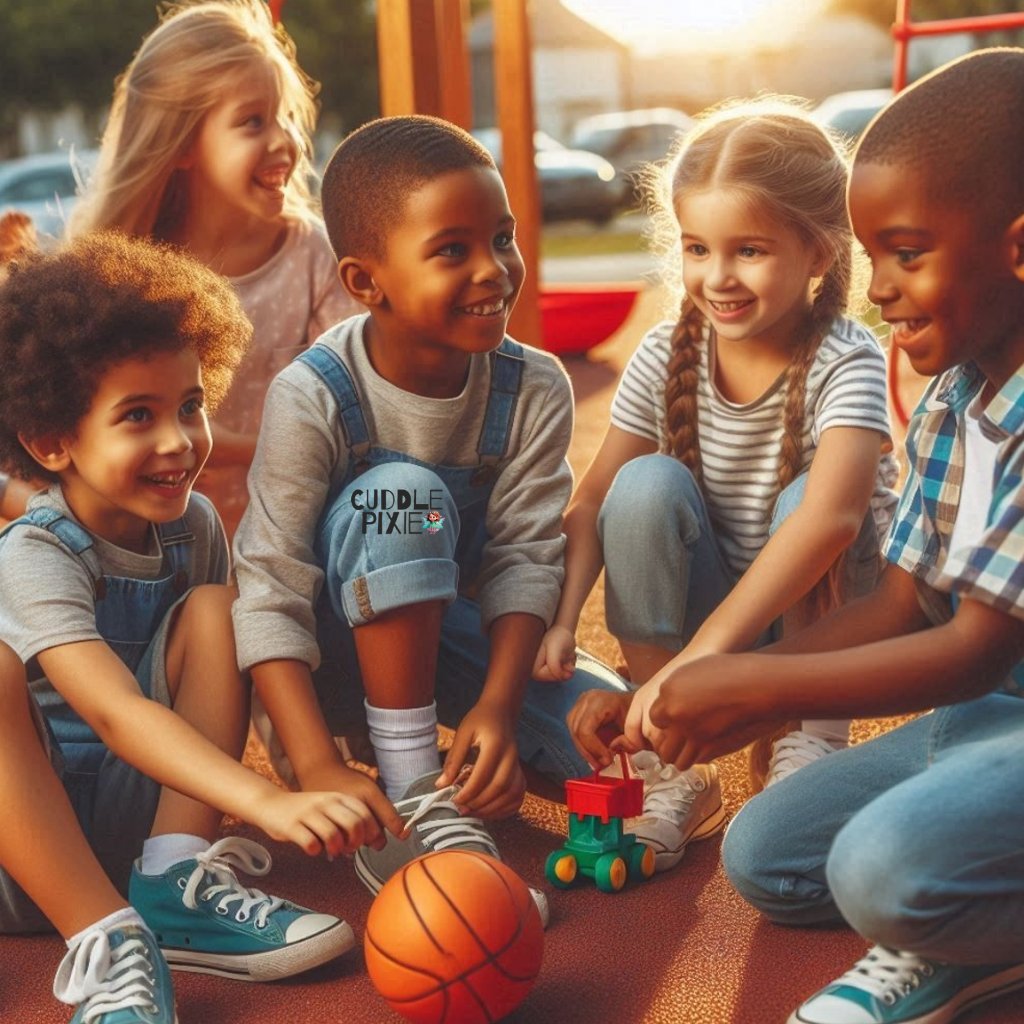
Playtime isn’t just a solo activity. When children play together, they develop important social skills that will help them throughout their lives.
- Friendship Factory: Through play, children learn to take turns, share toys, and cooperate with others. They build friendships and develop a sense of belonging. Playing board games, building a fort together, or taking turns pushing each other on the swing – these playful interactions help children learn how to get along with others and build strong friendships.
- Communication Corner: Play is a conversation starter! Children learn to communicate their ideas, needs, and feelings as they play together. Imagine a child explaining the rules of their pretend game to another child. They’re learning how to communicate clearly and effectively.
- Fair Play: Playgrounds can be great places to learn about fairness and following rules. Children navigate disagreements and find ways to resolve conflicts, all while having fun. Taking turns on the slide, sharing the blocks, or figuring out who gets to be the leader in their game – these playful experiences help children learn valuable lessons about fairness, cooperation, and conflict resolution.
Tips for Parents and Caregivers
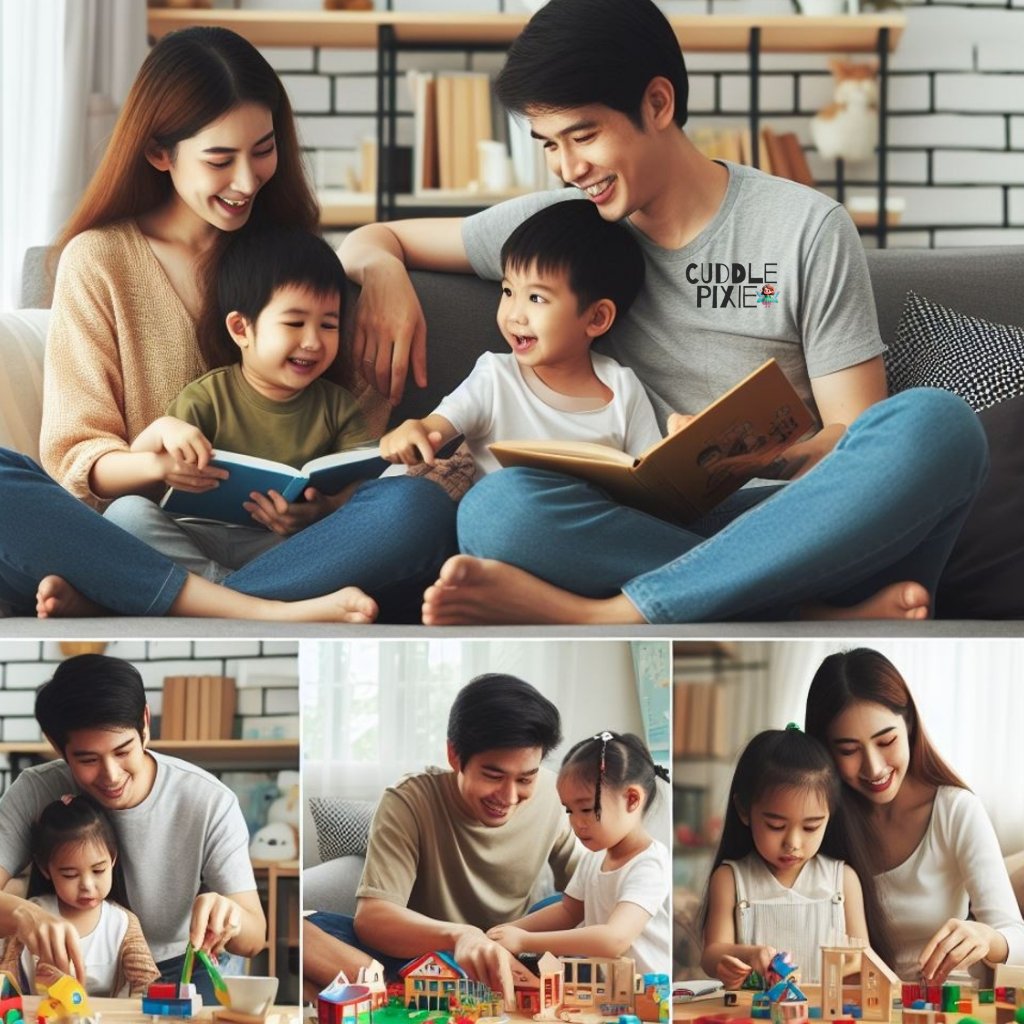
Now that you know how important playtime is, how can you make sure your child gets enough of it? Here are some tips:
- Make Time for Make-Believe: Set aside some time each day for unstructured play. This means letting your child take the lead and choose how they want to play. An hour might sound ideal, but even 20 or 30 minutes of uninterrupted playtime can make a big difference. Put away distractions like screens and allow your child to explore their imagination freely.
- Join the Fun: Get down on the floor and play with your child! Show them you’re interested in their world and imagination. You can build towers with them, have a tea party with their stuffed animals, or even join in on their elaborate pretend game. Your participation shows them that playtime is important and strengthens the bond between you.
- Yes to Simple Toys: Don’t feel pressured to buy fancy toys. Cardboard boxes, blankets, and blocks can spark endless creativity. A simple stick can become a magic wand, a pile of leaves can be a treasure trove, and a cardboard box can be a spaceship, a house, or anything their imagination desires. Open-ended toys encourage creativity and allow children to use their imaginations in unique ways.
- Let Them Lead: While it’s okay to suggest activities, try to follow your child’s lead during playtime. This allows them to explore their interests and learn at their own pace. If they’re building a tower with blocks, let them figure out how to make it taller and sturdier. If they’re having a tea party with their stuffed animals, let them decide who the guests are and what’s on the menu.
- The Outdoors Awaits: Take advantage of fresh air and sunshine! Parks, playgrounds, and even your backyard are great places for children to explore and play freely. Nature provides endless opportunities for climbing, running, digging, and exploring. Whether it’s building a sandcastle at the beach, climbing trees in the park, or chasing butterflies in the backyard, outdoor play allows children to connect with nature and develop a sense of adventure.
The Power of Play in Different Stages
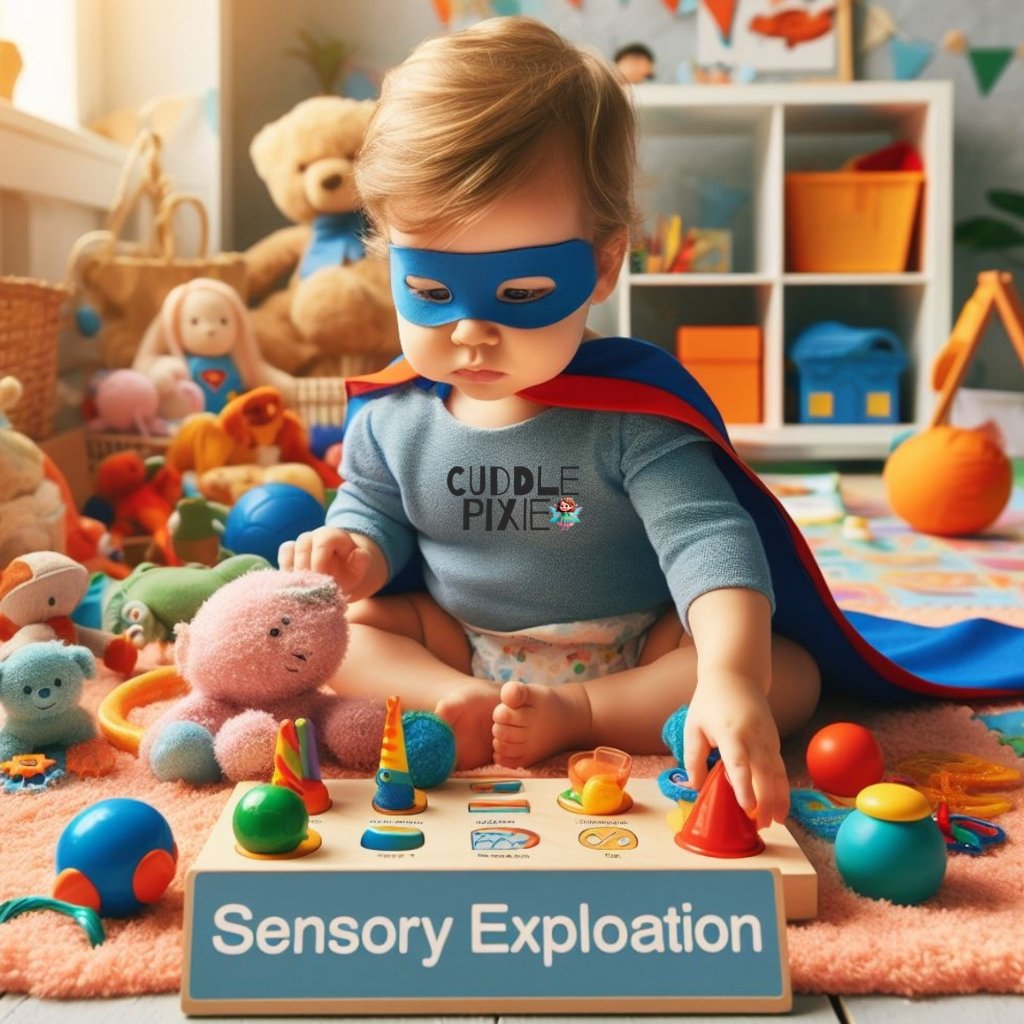
Play is important throughout childhood, but it takes on different forms as children grow and develop. Here’s a glimpse into the magic of play at different stages:
- Toddlers (1-3 years old): This is a time of rapid exploration and discovery. Toddlers love to play with simple toys, sing songs, and explore their surroundings. Sensory play, like playing with water, sand, or playdough, is especially important at this stage. It helps them learn about the world through their senses.
- Preschoolers (3-5 years old): Pretend play takes center stage during this period. Children love to dress up, create imaginary worlds, and role-play different characters. This type of play helps them develop their social skills, language skills, and creativity.
- School-aged children (6-12 years old): Play becomes more complex as children enter school. They enjoy board games, sports, building elaborate structures, and playing with friends. These activities help them develop critical thinking skills, teamwork, and problem-solving abilities.
The Gift of Play: A Lasting Impact
By embracing the power of play, you’re giving your child the greatest gift of all – the chance to learn, grow, and become who they’re meant to be. The skills they develop through play will benefit them throughout their lives, not just in school but also in their relationships, careers, and overall well-being.
Remember, the most important life lessons are often learned through laughter, imagination, and a healthy dose of make-believe. So put down the phone, grab some toys, and get ready to join the fun! Let playtime be a priority, a time for connection, exploration, and the joy of childhood. After all, it’s through the magic of make-believe that children blossom into happy, healthy, and amazing individuals.
